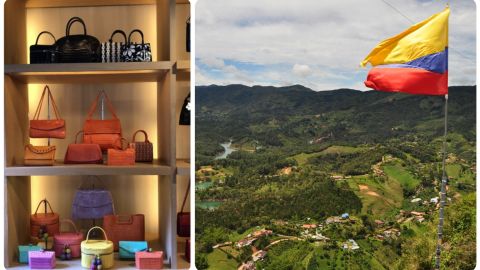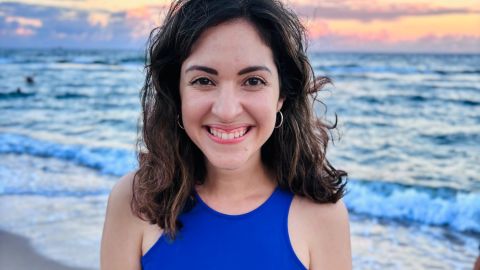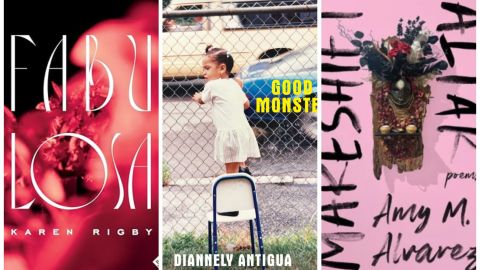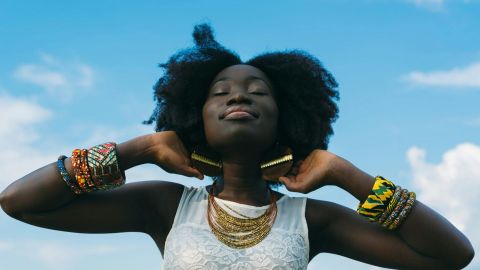Afro-Latina All-Natural Hair Care Line Does Away with “Pelo Malo”
Adassa Ramirez wants young women to know that the texture of their hair does not determine whether they have good or bad hair

Photo: Instagram/micmasremix (Courtesy of Adassa Ramirez)
Adassa Ramirez wants young women to know that the texture of their hair does not determine whether they have good or bad hair. The 38-year-old owner of the hair care line MicMas Remix is promoting more than all-natural products, she’s emphasizing a positive perspective to contradict the idea of “pelo malo”.
MicMas Remix — named after her sons Michael and Mason — was founded in 2016. A licensed cosmetologist, she initially opened up shop on Etsy before gaining enough buzz among consumers, the media and fellow entrepreneurs to open her own ecommerce business.
The hair straightening, relaxer and weave business brings in $9 billion a year but Ramirez believes in an all-natural approach to hair care. “It was important for the formulations to be all natural because I wanted the full benefits of the nutrients for hair and scalp care. This is why no heat is used in order to preserve the nourishment and prevent the breakdown of it.”
The recipe includes organic extra virgin coconut oil, pure lavender, organic mango butter, organic extra virgin olive oil and organic virgin shea nut butter. Along the way she encountered the inevitable struggles that comes with the hustle.
“I had to figure out how to mesh natural hair care, natural hair pride and representing the diversity of Latinas into my brand,” she said. “To personally know me is to know how this all is a big part of who I am. At the time it seemed so difficult to streamline my vision but I figured it out and made it happen.”
The Nuyorican grew up in a household that valued natural ingredients for hair care and Ramirez never had to deal with the idea of “pelo malo” till she moved to a predominantly Caucasian community.
“This was when I started to become conscientious about my hair and using relaxers in my early teens. That is a huge reason why I drive that message home with my brand. I remember being a young teenager and wishing my hair would blow in the breeze and wasn’t coarse. I literally went from one extreme to another with my mindset and at that age you tend to be so sensitive to your peers opinions especially when you’re the minority.”
Her products range in price from $15-$30 and she also offers a personalized experience tailored to a customer’s specific hair type for $20. The shop, like Ramirez herself, is brimming with Afro-Latina pride with tees and totes among other accessories promoting big curly hair.
“Afro-Latina pride is very important to me because I honor my African and Taino roots and how they influence the Latin culture. Isn’t it beautiful that even if you are a Latina/o not of African descent it is still celebrated in the culture?”
She hopes to one day open a salon in Puerto Rico and is donating a portion of sales proceeds to organizations helping with hurricane recovery in Puerto Rico. She and her boys also held a fundraiser to give children in shelters toys and affirmation cards her sons made.
According to research firm Mintel, 71 percent of black adults in the U.S. wore their hair naturally at least once in 2016 and spending on relaxers fell 30.8 percent between 2011 and 2016. By 2020, it’s estimated that relaxers will plummet to the smallest segment of the market. Ramirez is clearly onto something and she hopes her message comes through loud and clear.
“Embrace your hair, take care of it and don’t allow anyone to make you feel less of yourself because they have this preconceived idea of one texture being better than another. Push your crown up and keep it moving, loving all that makes you you.”

















